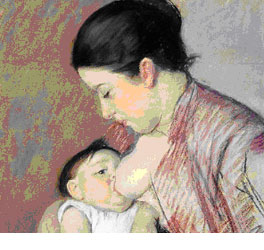SPEAKERS
Dr Doris Brothers, Dr Christopher Clulow, Dr Jeremy Holmes, Dr Amanda Jones, Rev Christopher MacKenna, Dr Phil Mollon, Jenny Riddell, Julia Segal, Dr Joseph Schwartz and Michael Soth
SPEAKER'S BIOGRAPHIES
ENVIRONMENTAL POLICY
CONFER takes its responsibility for environmental impact very seriously, and we welcome further suggestions.

BOOK TO ATTEND
BOOK ONLINE >>
This link takes you to a secure, partner website where your booking will be processed.
This link takes you to a secure, partner website where your booking will be processed.
VENUE
Lecture Theatre
Tavistock Centre
120 Belsize Lane
London
NW3 5BA
120 Belsize Lane
London
NW3 5BA
DIRECTIONS AND MAP
DATES
Monday evenings
12 September to 5 December 2011
12 September to 5 December 2011
SCHEDULE
Times
Registration 19.30
Start: 19.45
End 21.30
Start: 19.45
End 21.30
CPD HOURS
20 hours
Certificates of Attendance are provided at the event.
Certificates of Attendance are provided at the event.
FEES
Early bird (before 01 July 2011)
After 01 July 2011
Single seminar £33.33 +VAT
- Complete series £190 +VAT
- 3 seminars: £80 +VAT
Only available via post
After 01 July 2011
- Complete series £240 +VAT
- 3 seminars: £90 +VAT
Only available via post
Single seminar £33.33 +VAT
REFRESHMENTS
Refreshments of tea/coffee are included
PROGRAMME DETAILS
BOOKING CONDITIONS
We regret that refunds cannot be given in any circumstances unless you cancel your place in writing before 1 July 2011, in which case we will give you a 50% refund. If you need to cancel after 1 July 2011 you may pass on your place to another person.
APPLICATIONS OF OBJECT RELATIONS THEORY
in contemporary psychotherapy
A seminar series
in contemporary psychotherapy
A seminar series
MONDAY EVENINGS 12 SEPTEMBER to 5 DECEMBER 2011
ABOUT THIS EVENT
Since Freud described the attachment to the mother as "unique, without parallel, established unalterably for a whole lifetime as the first and strongest love-object and as the prototype of all later love relations" the role of primary relationships in the development of the human psyche has been a vital theme in psychoanalytic theory, absorbing the attention of every major subsequent theorist.
Out of these discussions, our understanding of how our first relationships form a template for all significant future relationships has been elaborated and refined so that we now have a sophisticated understanding of the power of that prototype in the psyche. It is widely accepted that from birth we develop unconscious expectations of the other out of which our sense of self emerges; that what we feel about about ourself is often merely a shadow of the projections we received in infancy.
Psychotherapy steps in when those prototypes of self and other are painful or destructive and we seek to introduce new experiences and expectations of the self and other. We consciously and deliberately work with the human need for safety in relationships, and the tensions implicit in finding this in an imperfect world.
How do our speakers work with this powerful theoretical offering? Was Freud right to say that our prototype for love relationships is unalterable? Where has the object relations discussion taken us today?
